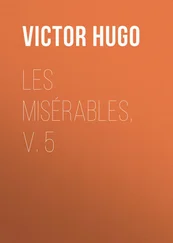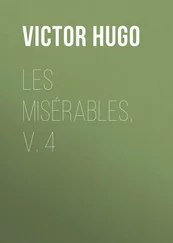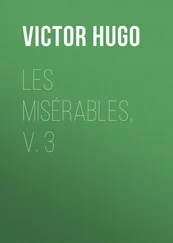Lascelles Wraxall - Les Misérables, v. 1
Здесь есть возможность читать онлайн «Lascelles Wraxall - Les Misérables, v. 1» — ознакомительный отрывок электронной книги совершенно бесплатно, а после прочтения отрывка купить полную версию. В некоторых случаях можно слушать аудио, скачать через торрент в формате fb2 и присутствует краткое содержание. Жанр: literature_19, foreign_antique, foreign_prose, на английском языке. Описание произведения, (предисловие) а так же отзывы посетителей доступны на портале библиотеки ЛибКат.
- Название:Les Misérables, v. 1
- Автор:
- Жанр:
- Год:неизвестен
- ISBN:нет данных
- Рейтинг книги:4 / 5. Голосов: 1
-
Избранное:Добавить в избранное
- Отзывы:
-
Ваша оценка:
- 80
- 1
- 2
- 3
- 4
- 5
Les Misérables, v. 1: краткое содержание, описание и аннотация
Предлагаем к чтению аннотацию, описание, краткое содержание или предисловие (зависит от того, что написал сам автор книги «Les Misérables, v. 1»). Если вы не нашли необходимую информацию о книге — напишите в комментариях, мы постараемся отыскать её.
Les Misérables, v. 1 — читать онлайн ознакомительный отрывок
Ниже представлен текст книги, разбитый по страницам. Система сохранения места последней прочитанной страницы, позволяет с удобством читать онлайн бесплатно книгу «Les Misérables, v. 1», без необходимости каждый раз заново искать на чём Вы остановились. Поставьте закладку, и сможете в любой момент перейти на страницу, на которой закончили чтение.
Интервал:
Закладка:
The Bishop, without perhaps confessing it to himself, felt that the blow had gone home; still he kept a good countenance, and answered, —
"The judge speaks in the name of justice; the priest speaks in that of pity, which is only a higher form of justice. A thunder-clap must not deceive itself."
And he added as he looked fixedly at the conventionalist, —
"And Louis XVII.?"
The Republican stretched forth his hand and seized the Bishop's arm.
"Louis XVII. Let us consider. Whom do you weep for? Is it the innocent child? in that case I weep with you. Is it the royal child? in that case I must ask leave to reflect. For me, the thought of the brother of Cartouche, an innocent lad, hung up under the armpits in the Place de Grève until death ensued, for the sole crime of being Cartouche's brother, is not less painful than the grandson of Louis XV., the innocent boy martyrized in the Temple Tower for the sole crime of being the grandson of Louis XV."
"I do not like such an association of names, sir," said the Bishop.
"Louis XV.? Cartouche? On behalf of which do you protest?"
There was a moment's silence; the Bishop almost regretted having come, and yet felt himself vaguely and strangely shaken. The conventionalist continued, —
"Ah! sir priest, you do not like the crudities of truth, but Christ loved them; he took a scourge and swept the temple. His lightning lash was a rough discourser of truths. When he exclaimed, 'Suffer little children to come unto me,' he made no distinction among them. He made no difference between the dauphin of Barabbas and the dauphin of Herod. Innocence is its own crown, and does not require to be a Highness; it is as august in rags as when crowned with fleurs de lis ."
"That is true," said the Bishop in a low voice.
"You have named Louis XVII.," the conventionalist continued; "let us understand each other. Shall we weep for all the innocents, martyrs, and children of the lowest as of the highest rank? I am with you there, but as I said, in that case we must go back beyond '93, and begin our tears before Louis XVII. I will weep over the children of the kings with you, provided that you weep with me over the children of the people."
"I weep for all," said the Bishop.
"Equally!" G – exclaimed; "and if the balance must be uneven, let it be on the side of the people, as they have suffered the longest."
There was again a silence, which the Republican broke. He rose on his elbow, held his chin with his thumb and forefinger, as a man does mechanically when he is interrogating and judging, and fixed on the Bishop a glance full of all the energy of approaching death. It was almost an explosion.
"Yes, sir; the people have suffered for a long time. But let me ask why you have come to question and speak to me about Louis XVII.? I do not know you. Ever since I have been in this country I have lived here alone, never setting my foot across the threshold, and seeing no one but the boy who attends to me. Your name, it is true, has vaguely reached me, and I am bound to say that it was pronounced affectionately, but that means nothing, for clever people have so many ways of making the worthy, simple folk believe in them. By the bye, I did not hear the sound of your coach; you doubtless left it down there behind that clump of trees at the cross roads. I do not know you, I tell you; you have informed me that you are the Bishop, but that teaches me nothing as to your moral character. In a word – I repeat my question, Who are you? You are a bishop, that is to say, a prince of the Church, one of those gilded, escutcheoned annuitants who have fat prebends – the Bishopric of D – , with 15,000 francs income, 10,000 francs fees, or a total of 25,000 francs, – who have kitchens, liveries, keep a good table, and eat water-fowl on a Friday; who go about, with lackeys before and behind, in a gilded coach, in the name of the Saviour who walked barefoot! You are a prelate; you have, like all the rest, income, palace, horses, valets, a good table, and like all the rest you enjoy them: that is all very well, but it says either too much or too little; it does not enlighten me as to your intrinsic and essential value when you come with the probable intention of bringing me wisdom. To whom am I speaking – who are you?"
The Bishop bowed his head, and answered, "I am a worm."
"A worm in a carriage!" the Republican growled.
It was his turn to be haughty, the Bishop's to be humble; the latter continued gently, —
"Be it so, sir. But explain to me how my coach, which is a little way off behind the trees, my good table, and the water-fowl I eat on Friday, my palace, my income, and my footmen, prove that pity is not a virtue, that clemency is not a duty, and that '93 was not inexorable."
The Republican passed his hand over his forehead, as if to remove a cloud.
"Before answering you," he said, "I must ask you to forgive me. I was in the wrong, sir, for you are in my house and my guest. You discuss my ideas, and I must restrict myself to combating your reasoning. Your wealth and enjoyments are advantages which I have over you in the debate, but courtesy bids me not employ them. I promise not to do so again."
"I thank you," said the Bishop.
G – continued: "Let us return to the explanation you asked of me. Where were we? What was it you said, that '93 was inexorable?"
"Yes, inexorable," the Bishop said; "what do you think of Marat clapping his hands at the guillotine?"
"What do you think of Bossuet singing a Te Deum over the Dragonnades?"
The response was harsh, but went to its mark with the rigidity of a Minié bullet. The Bishop started, and could not parry it, but he was hurt by this way of mentioning Bossuet. The best minds have their fetishes, and at times feel vaguely wounded by any want of respect on the part of logic. The conventionalist was beginning to gasp; that asthma which is mingled with the last breath affected his voice; still he retained perfect mental clearness in his eyes. He continued, —
"Let us say a few words more on this head. Beyond the Revolution, which, taken in its entirety, is an immense human affirmation, '93, alas, is a reply. You consider it inexorable, but what was the whole monarchy? Carrier is a bandit, but what name do you give to Montrevel? Fouquier Tainville is a scoundrel, but what is your opinion about Lamoignon-Bâville? Maillard is frightful, but what of Saulx-Tavannes, if you please? Father Duchêne is ferocious, but what epithet will you allow me for Père Letellier? Jourdan Coupe-Tête is a monster, but less so than the Marquis de Louvois. I pity Marie Antoinette, Archduchess and Queen, but I also pity the poor Huguenot woman who, in 1685, while suckling her child, was fastened, naked to the waist, to a stake, while her infant was held at a distance. Her breast was swollen with milk, her heart with agony; the babe, hungry and pale, saw that breast and screamed for it, and the hangman said to the wife, mother, and nurse, 'Abjure!' giving her the choice between the death of her infant and the death of her conscience. What do you say of this punishment of Tantalus adapted to a woman? Remember this carefully, sir, the French Revolution had its reasons, and its wrath will be absolved by the future. Its result is a better world; and a caress for the human race issues from its most terrible blows. I must stop, for the game is all in my favor – besides, I am dying."
And ceasing to regard the Bishop, the Republican finished his thought with the following few calm words, —
"Yes, the brutalities of progress are called revolutions, but when they are ended, this fact is recognized; the human race has been chastised, but it has moved onwards."
The Republican did not suspect that he had carried in turn every one of the Bishop's internal intrenchments. One still remained, however, and from this, the last resource of Monseigneur's resistance, came this remark, in which all the roughness of the commencement was perceptible.
Читать дальшеИнтервал:
Закладка:
Похожие книги на «Les Misérables, v. 1»
Представляем Вашему вниманию похожие книги на «Les Misérables, v. 1» списком для выбора. Мы отобрали схожую по названию и смыслу литературу в надежде предоставить читателям больше вариантов отыскать новые, интересные, ещё непрочитанные произведения.
Обсуждение, отзывы о книге «Les Misérables, v. 1» и просто собственные мнения читателей. Оставьте ваши комментарии, напишите, что Вы думаете о произведении, его смысле или главных героях. Укажите что конкретно понравилось, а что нет, и почему Вы так считаете.












